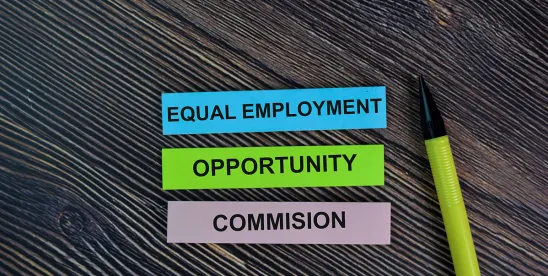On July 17, 2024, the U.S. District for the Northern District of Texas rejected the State of Texas’s request that it vacate recent guidance from the U.S. Equal Employment Opportunity Commission (EEOC) on harassment and discrimination in the workplace as it concerns protections for LGBTQ+ individuals. The court’s ruling, however, is unlikely to end the dispute.
Quick Hits
- A federal district court recently struck down a legal challenge to the EEOC’s 2024 Enforcement Guidance on Harassment in the Workplace, which provided guidance as to how federal law prohibiting sex discrimination also encompasses discrimination based on sexual orientation and gender identity.
- Texas sought to invalidate the EEOC’s 2024 guidance regarding how Title VII protects bathroom/locker room usage, dress codes, and pronouns for LGBTQ+ individuals in the workplace.
- The court did not clarify whether the EEOC’s latest guidance is lawful.
On October 1, 2022, the U.S. District for the Northern District of Texas vacated the EEOC’s technical assistance document from June 15, 2021, which sought to explain the impact of the Supreme Court of the United States’ Bostock v. Clayton County, Georgia decision for LGBTQ+ workers. It found the guidance was an unlawful extension of that decision and issued a declaratory judgment to that effect.
In lieu of filing a new lawsuit, Texas asked the same court to enjoin the EEOC’s 2024 Enforcement Guidance on Harassment in the Workplace, which provides guidance as to how federal law prohibiting sex discrimination also encompasses discrimination based on sexual orientation and gender identity.
The court denied the requested relief without clarifying whether the EEOC’s latest guidance was lawful, but instead said that a new lawsuit would be needed to challenge the new guidance. That lawsuit is likely forthcoming.
Earlier Proceedings
On June 15, 2020, in Bostock v. Clayton County, Georgia, the Supreme Court held that Title VII of the Civil Rights Act of 1964 prohibits employers from firing or discriminating against workers for being homosexual or transgender. A year later, on June 15, 2021, the EEOC issued a technical assistance document that explained what the Bostock decision means for LGBTQ+ workers. Texas filed suit in the U.S. District Court for the Northern District of Texas against the EEOC, Chair Burrows, and the attorney general of the United States on September 20, 2021, seeking a declaratory judgment that the 2021 guidance was unlawful.
In its opinion vacating the 2021 guidance and issuing a declaratory judgment, the court reasoned, in part, that the guidance misapplied Bostock to categories of conduct discussed in the dissenting opinion to Bostock—but deferred in the majority opinion. These categories included, for example, the usage of bathrooms or locker rooms, dress code requirements, and pronoun usage.
At that time, EEOC Commissioner Andrea Lucas issued a statement objecting to the EEOC’s 2021 guidance, calling it “policy masquerading as an innocuous ‘fact sheet,’ rammed through without regard for the limits of Title VII.” She said the EEOC overstepped its authority.
EEOC’s 2024 Guidance
On April 29, 2024, the EEOC issued the final version of new workplace harassment guidance for employers. The 2024 guidance explains the EEOC’s view that discrimination based on sexual orientation or gender identity is a form of unlawful sex-based discrimination under Title VII, including epithets, physical assault, “outing” (meaning disclosing an individual’s sexual orientation or gender identity without permission), or other harassing conduct toward individuals because they do “not present in a manner that would stereotypically be associated with that person’s sex.” Further, the guidance identifies as potential harassment the “repeated and intentional use of a name or pronoun inconsistent with the individual’s known gender identity (misgendering); or the denial of access to a bathroom or other sex-segregated facility consistent with the individual’s gender identity.”
Recent Proceedings
Rather than file a new lawsuit, on May 21, 2024, Texas filed a “motion for further necessary or proper relief” with the same district court that had enjoined the 2021 guidance, arguing that the 2024 guidance violated the court’s declaratory judgment. The court denied that motion, explaining that the relief being sought concerned issues the court had not addressed previously. “A challenge to the 2024 guidance represents a separate case or controversy” that would be “better resolved in a separate action,” the court said.
The court twice stated that it was taking no position on the lawfulness, or unlawfulness, of the 2024 guidance, as such a determination could be made only after “‘a full-bodied record’” has been “‘developed through adequate adversary proceedings.’” The court essentially directed Texas to file a new lawsuit.
Next Steps
Texas or another state could bring a new case in an attempt to invalidate the 2024 guidance as it concerns LGBTQ+ protections. On May 13, 2024, eighteen states sued the EEOC over the same piece of guidance. There’s been no ruling in that case yet.
The opinion of the U.S. District Court for the Northern District of Texas in vacating the 2021 guidance could be insightful as to any future analysis of the same issues. The disposition of such challenges is unlikely to be resolved in the immediate future, and the 2024 guidance remains in effect.
Employers may wish to review their policies on bathroom usage, dress codes, and pronoun use for LGBTQ+ employees to assess compliance with local, state, and federal anti-discrimination and anti-harassment laws, including nuanced approaches adopted across different jurisdictions. This review may include company standards for hairstyles, personal grooming, work uniforms, and access to bathrooms and locker rooms or other single-sex facilities.





 />i
/>i
